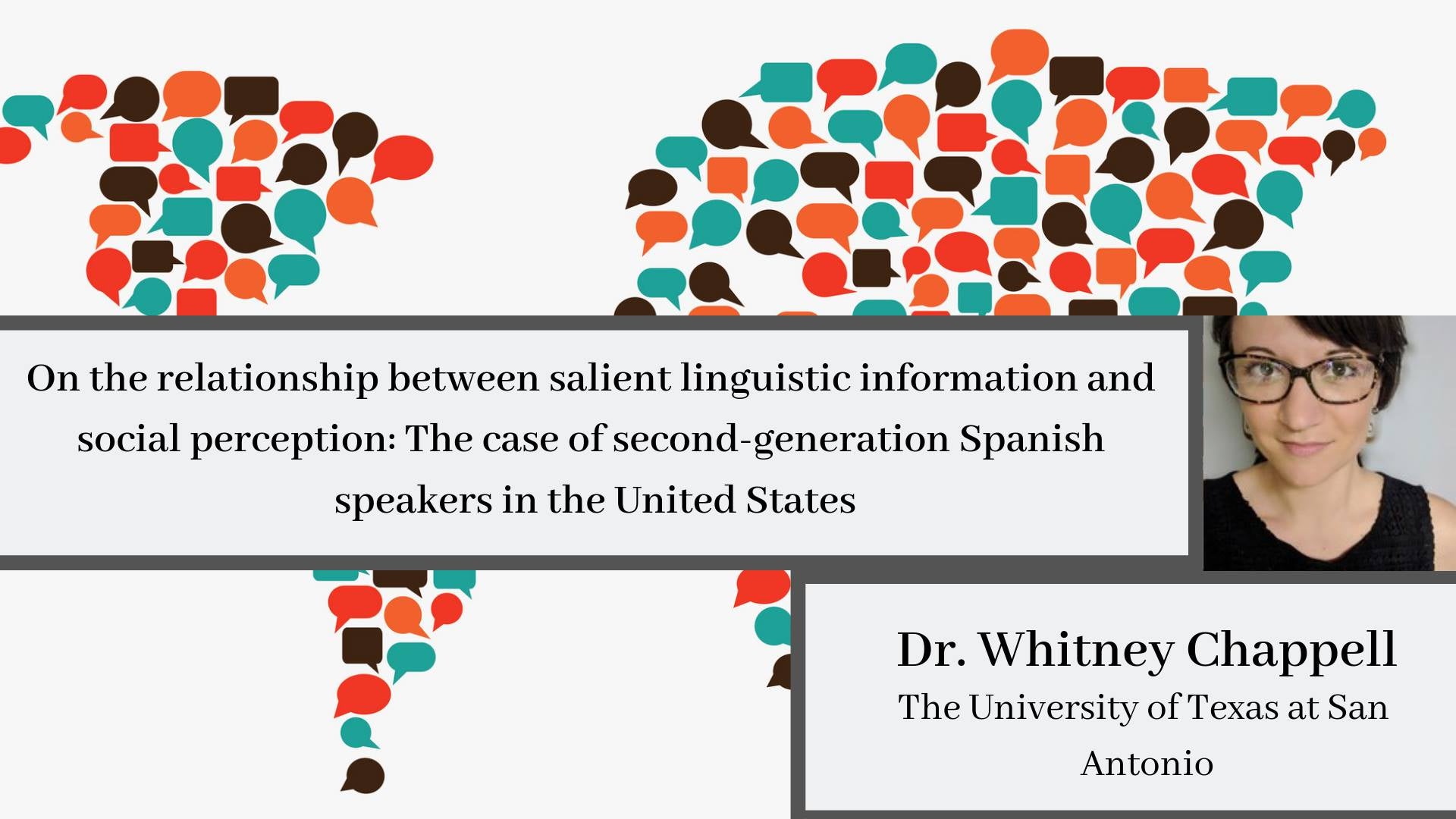Lecture by Dr. Whitney Chappell of UTSA

Posted in Events | Tagged event, events, linguistics, sociolinguistics, spanish, united states, us, usa
Please join the Department of Spanish and Portuguese and Dr. Whitney Chappell for “On the relationship between salient linguistic information and social perception: The Case of Second-Generation Spanish Speakers in the United States!” The talk will be conducted in English, and will be followed by a reception.
About the talk: The present study investigates 2nd-generation Spanish speakers’ social perceptions of /s/ aspiration in their home language. To this end, 75 US-born Mexican Spanish speakers participated in a matched-guise study in which they heard coda /s/ presented with [s] or [h] in Mexican and Puerto Rican voices, and they evaluated each voice along a matrix of social properties and the speaker’s likely origin. The results of a statistical analysis show that aspiration was perceived as a marker of lower intelligence, lower confidence, older age, and a more Caribbean origin (p < 0.01). The results of this experiment demonstrate that (i) 2nd-generation speakers are highly attuned to sociophonetic information in their home language, (ii) their social evaluations of phonetic variation largely parallel those of monolingual speakers, and (iii) their linguistic knowledge is imbued with their social and cultural experiences.
About the speaker: Dr. Whitney Chappell is an Assistant Professor of Hispanic linguistics at the University of Texas at San Antonio. She earned her doctorate from The Ohio State University in 2013 and her research focuses on sociophonetic variation in the Spanish-speaking world, or how Spanish speakers construct social meaning through their use of contextualized linguistic variants. Her most recent projects focus on the sociophonetic perception of nonstandard variants among monolingual and bilingual Spanish speakers. Her publications have appeared in Language Variation and Change, The Journal of Voice, Hispania, Heritage Language Journal, Estudios de fonética experimental, and Studies in Hispanic and Lusophone Linguistics, among many others venues.
